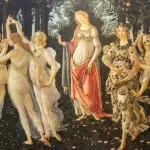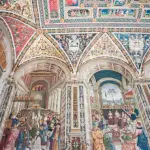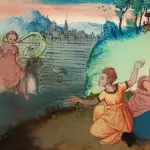Easter is the celebration of Jesus Christ’s resurrection. Preceded by Lent; the 40-day period of fasting, penance, and prayer, Easter is a grand celebration of light and love with festivities such as Easter Egg hunts. To learn more about the popular holiday, here are 10 things you need to know about Easter. Enjoy!
Fact 1: Quite possibly the most important of all Christian holidays, Easter is the celebration of Christ’s resurrection from the dead. This takes place after his death on Good Friday. The rebirth of the Savior is celebrated all around the vernal equinox, the period known throughout history as the time pagans celebrate the arrival of spring. The Christian celebration, which coincides with the Pagan tradition, both symbolizes the coming of light and the awakening of life.
Fact 2: The holiday gets its name from the ancient Saxon goddess Oestre or Easter. In Germany she went by the name Ostara. A goddess of the dawn and the spring, her name comes from the words for dawn, the light shining from the East. She was also the goddess of fertility. Responsible for bringing the end to winter, the goddess had a passion for new life. The rabbit, known for its propensity, is her sacred animal.
Fact 3: Easter eggs, an obvious symbol of fertility, and Easter bunnies are featured during this celebration because of their connection to the goddess Ostara or Easter. The eggs and rabbit both being sacred symbols of reproduction. Brightly colored Easter eggs and festive decorations during this time of year are a tribute to the goddess in appreciation for everything that she had done, most importantly for bringing an end to Winter once more.
Fact 4: Some folklore suggest that the tradition of Easter Egg Hunts came about in Europe during the Burning Times, back when the strong following of Christianity led to the excommunication – and often times prosecution – of those who still believed in and practiced the Old Religion. Christian Authorities would persuade children to find the brightly colored eggs which belonged to the pagans. They would then ask the children to lead the way to the property which they found the eggs in, hopeful of being able to bring the so called “heathens” to justice.
Fact 5: Another tale about the origins of Easter tell the story of how the goddess Ostara arrived late one Spring, and feeling guilty about a bird whose wings were frozen because of the snow. She healed the bird and grew very fond of him. Eventually, he turned him into a Snow hare, blessing him with incredible speed to get away from danger. In remembrance of his initial form as a bird, she allowed him to lay eggs- in every color of the rainbow at that.
Fact 6: The recipe for the beloved Easter eggs date all the way back to the nineteenth century, where maidens would churn and bake everything from scratch. The original chocolate Easter baskets were made to look like birds’ nests.
Fact 7: Pilgrims detested Easter and everything that had to do with it. The Puritans hated the religious holiday such as Easter and Christmas because they believed that these holidays had Pagan roots and lacked scriptural basis. Things got so bad between the early New England Christian colonies and the Puritans that the latter flat-out banned Easter from 1659 up until 1861, hitting those who disobeyed with a hefty fine of five shilling.
Fact 8: All the way in Spain, Christians don white pointed hoods, masks, and cloaks to be able to participate in a late night parade. An event organized by local religious brotherhoods, the parade is joined by sinners who carried crucifixes and religious symbols on the streets acting out the Easter Story.
Fact 9: During mediaeval times, egg throwing was held in church. The priest would throw a vibrantly painted hardboiled egg to one of the choirboys, and it would be passed on from person to person. The last person to have the egg when the clock strikes 12 gets to keep it.
Fact 10: The tradition of giving out eggs during Easter goes all the way back to the ancient civilizations. From the Egyptians and Persians, right down to the Greeks, Romans, and Gauls. The egg was a symbol of life.










Leave a Reply